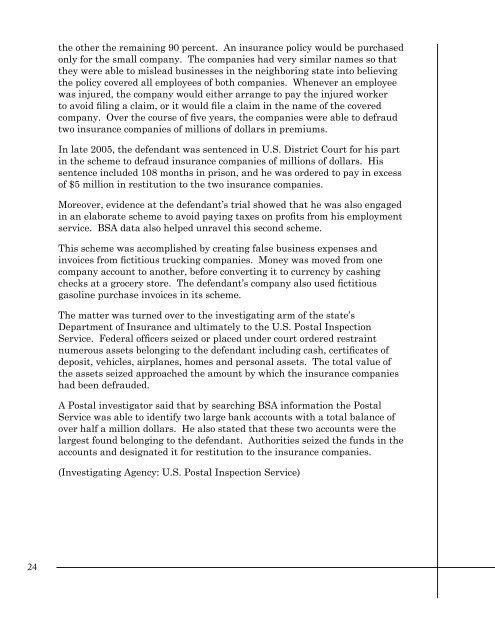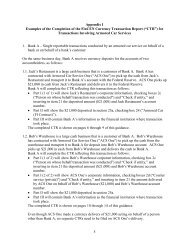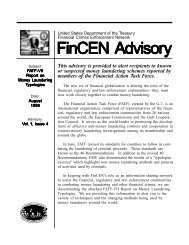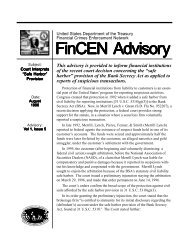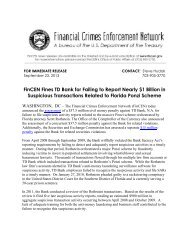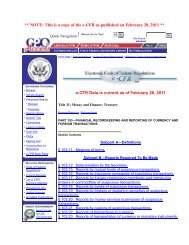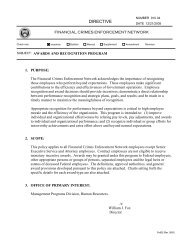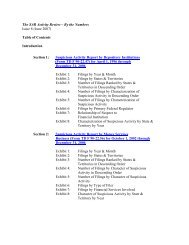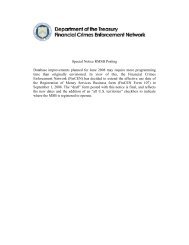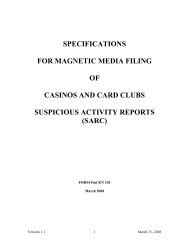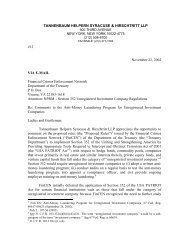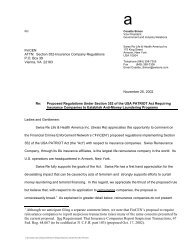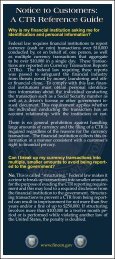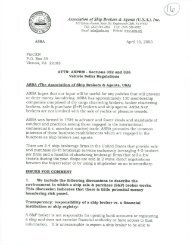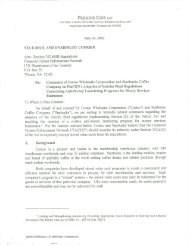FinCEN SAR Activity Review, Trends, Tips & Issues, Issue 10
FinCEN SAR Activity Review, Trends, Tips & Issues, Issue 10
FinCEN SAR Activity Review, Trends, Tips & Issues, Issue 10
Create successful ePaper yourself
Turn your PDF publications into a flip-book with our unique Google optimized e-Paper software.
24<br />
the other the remaining 90 percent. An insurance policy would be purchased<br />
only for the small company. The companies had very similar names so that<br />
they were able to mislead businesses in the neighboring state into believing<br />
the policy covered all employees of both companies. Whenever an employee<br />
was injured, the company would either arrange to pay the injured worker<br />
to avoid filing a claim, or it would file a claim in the name of the covered<br />
company. Over the course of five years, the companies were able to defraud<br />
two insurance companies of millions of dollars in premiums.<br />
In late 2005, the defendant was sentenced in U.S. District Court for his part<br />
in the scheme to defraud insurance companies of millions of dollars. His<br />
sentence included <strong>10</strong>8 months in prison, and he was ordered to pay in excess<br />
of $5 million in restitution to the two insurance companies.<br />
Moreover, evidence at the defendant’s trial showed that he was also engaged<br />
in an elaborate scheme to avoid paying taxes on profits from his employment<br />
service. BSA data also helped unravel this second scheme.<br />
This scheme was accomplished by creating false business expenses and<br />
invoices from fictitious trucking companies. Money was moved from one<br />
company account to another, before converting it to currency by cashing<br />
checks at a grocery store. The defendant’s company also used fictitious<br />
gasoline purchase invoices in its scheme.<br />
The matter was turned over to the investigating arm of the state’s<br />
Department of Insurance and ultimately to the U.S. Postal Inspection<br />
Service. Federal officers seized or placed under court ordered restraint<br />
numerous assets belonging to the defendant including cash, certificates of<br />
deposit, vehicles, airplanes, homes and personal assets. The total value of<br />
the assets seized approached the amount by which the insurance companies<br />
had been defrauded.<br />
A Postal investigator said that by searching BSA information the Postal<br />
Service was able to identify two large bank accounts with a total balance of<br />
over half a million dollars. He also stated that these two accounts were the<br />
largest found belonging to the defendant. Authorities seized the funds in the<br />
accounts and designated it for restitution to the insurance companies.<br />
(Investigating Agency: U.S. Postal Inspection Service)


